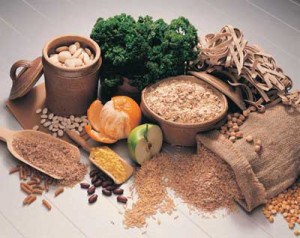When you are training for a long distance race, such as a half marathon or a marathon, what you eat matters. Caloric intake needs to compensate for what you burn on the road, trail or treadmill during your runs. When you are training, your body undergoes significant stress and depletion of energy stores. The energy lost on a long run, speed or hill workout needs to be replaced with the nutrition you put into your body through food and drink.
Female runners need to consume between 2100 – 2500 calories per day to compensate for a 20 mile running week. Male runners need to eat between 500 – 800 more calories than this, depending upon body size and weekly mileage. Approximately 55 – 60% of these calories should come from carbohydrates. Many runners are hesitant to indulge in carbs these days, especially with all the pomp and circumstance surrounding low carb diets such as Paleo that are currently popular. Runners require carbs because carbs are the main source of energy for runners. Great sources of this essential energy come from complex carbs such as whole grains, pastas and fruits.
Personally, I find that pasta dishes are the best way to go while training. I have several recipes that I use during my training week which range from spaghetti to stuffed shells (I use tofu as a part of the cheese mixture to cut calories and boost protein). Plain bow-tie pasta drizzled in olive oil and flavored with garlic, onion or herbs to help cut down on salt content is another favorite dish. I often make enough to eat for dinner as well as lunch the next day.
Protein is also important for runners who are training for a long distance race. Building up muscle once it has been torn down is an essential part of your training diet as a runner. Protein is the dietary component responsible for this task. 25 – 30% of your diet should be comprised of protein when you are training for a long distance race.
Lean protein is the key to keeping calories in balance with your training program. Chicken, fish and lean beef are excellent sources of protein. There are several vegetarian sources of protein such as beans, peas and other legumes. The runner’s diet should be one that is somewhat low in fat and high in productive foods to keep your body running like the machine it is. Protein is the prime source of muscle health for a runner’s muscles.
Drinking water is another important part of the runner-in-training’s diet. Water intake is extremely important to increase with your calories and your mileage increase. Neglecting to increase your water will stifle the efforts of eating well and running hard. While it is true that you can take in some of your water content from the foods that you eat, water intake must increase steadily throughout your training regimen.
For more great advice on what to eat during your training program, check out our other articles at runnersgoal.com.



Comments are closed.